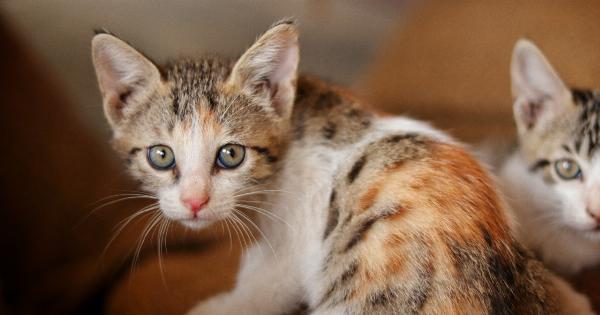Coming across an orphaned kitten can be both heartwarming and overwhelming. These tiny creatures rely on us for their survival, and it is crucial to take immediate action to provide them with the care they need.
This article will guide you through the steps to take when you find an orphaned kitten, ensuring that you can offer them the best chance at a healthy life.
Step 1: Assess the Situation
Before taking any further action, it is important to assess the situation to determine whether the kitten is truly orphaned or if their mother is temporarily absent.
Observe the surroundings and wait for a reasonable amount of time to see if the mother returns. If the mother does not appear after several hours, it is likely that the kitten is truly orphaned and in need of assistance.
Step 2: Ensure Your Safety and the Kitten’s Safety
When handling an orphaned kitten, it is important to prioritize safety for both yourself and the kitten. Put on protective gloves to prevent the transmission of any potential diseases or parasites.
This will protect you from scratches and bites while also ensuring the kitten’s fragile immune system remains safe.
Step 3: Create a Warm and Comfortable Environment
Kittens are highly susceptible to cold because they cannot regulate their body temperature effectively. Create a warm and comfortable environment by placing a heating pad set on low beneath a soft blanket or towel.
This makeshift nest will provide the kitten with the warmth and security they need.
Step 4: Provide Proper Nutrition
Orphaned kittens require proper nutrition for their growth and development. If possible, consult a veterinarian to determine the appropriate type of kitten formula or milk replacer. Do not feed them cow’s milk as it can lead to digestive issues.
Follow the vet’s advice for feeding intervals and quantities based on the kitten’s age and weight.
Step 5: Feeding Techniques
Feeding orphaned kittens requires a specific approach to mimic their natural feeding behavior. Use a small nursing bottle or syringe with a soft nipple designed for kittens.
Hold the kitten in an upright position, similar to how their mother would position them, and allow them to suckle at their own pace. Avoid force-feeding, as this can lead to aspiration and choking.
Step 6: Encourage Urination and Defecation
Orphaned kittens need assistance to eliminate waste as their mother would typically stimulate this process by licking them. Gently massage the kitten’s genital area with a warm, damp cloth after each feeding to encourage urination and defecation.
This will prevent discomfort and potential health issues.
Step 7: Socialization and Gentle Handling
Helping the orphaned kitten develop socialization skills is crucial for their well-being. Handle them gently and frequently, ensuring they become comfortable with human interaction.
This will make future adoptions easier and increase their chances of finding a forever home.
Step 8: Consult a Veterinarian
While you can provide initial care for an orphaned kitten, it is essential to consult a veterinarian for a thorough examination.
The vet will assess the kitten’s overall health, administer any necessary vaccinations, and provide guidance on further care specific to their needs.
Step 9: Seek Assistance from Local Animal Rescue Organizations
If you are unable to provide long-term care for the orphaned kitten, consider reaching out to local animal rescue organizations or shelters.
These organizations have the resources and experience to ensure the kitten’s proper care until they find a loving home.
Step 10: Consider Adoption
Finally, if you find yourself becoming attached to the orphaned kitten, consider the possibility of adoption.
Providing a forever home for an orphaned kitten is a rewarding experience, and it ensures they will receive the love and care they need for the rest of their lives.
Conclusion
Encountering an orphaned kitten can be a call to action, but with the right steps and care, you can provide them with a second chance at life.
Assess the situation, create a warm environment, provide proper nutrition, and consult a veterinarian for guidance. By following these steps, you can help these vulnerable creatures grow into healthy and happy adult cats.






























